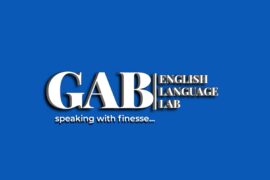Why can’t we have one of our languages as our official language in Nigeria?
Ganiu Bamgbose, PhD.
An official language is a language deployed for official purposes such as education, journalism, legislation and commerce. Such language is usually the most prestigeous language in a country. It is also important to state that one or more languages can serve as the official languages in a country.
A term closely related, but of course different from official language, is national language. A national language is an indigenous language which serves as an official language in a country. Such language(s) is given official recognition in the constitution and policy documents of a country. English is the national language in England and Hindus is a national language in India. One thing to note is that, Nigeria does not have a national language in the real sense of it since English still primarily serves as the official language of the country.
Bamgbose (1995) reported a list of five options for the national language candidature in Nigeria. The first possibility is the adoption of one or more of the major languages (Yoruba, Ibo and Hausa) of the country. The second is the adoption of one or more of the over five hundred minor languages. The third option considers Pidgin English. The fourth favours a fabricated language such as the long proposed WAZOBIA and the fifth argues in favour of Kiswahili (a popular African language). Notable among the proponents of the fifth is the literary virtuoso, Professor Wole Soyinka.
Of course English is omitted from the list on the ground that it is not an indigenous language. This, to some linguists, is debatable; I inclusive. This article, therefore, proposes the, not only inclusion; but, of course also, the adoption of the English language as the national language in Nigeria.
In the wake of the inclusion of over twenty Nigerian English words in the vocabulary of English language, it is no longer arguable that English is a foreign language in Nigeria.
Nigerian English is a full-fledged variety of English with its distinct linguistic idiosyncrasies, especially in terms of lexico-semantic explorations. With the existence of coined words such as bean cake, head gear, hold up, well done, go slow in addition to the newly adopted words from Nigerian English, it is a mere joke to assume that English has not come to stay in Nigeria forever. I am, therefore, proposing the adoption of the English language as a national language in Nigeria. This adoption comes with a whole lot of work which concerns the government and the language scholars.
The government has the task of formulating and implementing clear national policies which will consolidate the presence of English in Nigeria and equally ensure the survival of the indigenous languages. Some of the good existing policies such as the adoption of indigenous languages in the first three years of primary education should be pursued more vigorously too and citizens should also be encouraged to make their indigenous languages the language of the home to avoid extinction as already being experienced with many Nigerian languages. This move is crucial as the legacies, values, norms, customs, traditions and heritage of the country are still deeply rooted in these languages. In fact, since the plan is to make the English language reflect and convey our worldview, a good understanding of our indigenous languages is a prerequisite for this achievement.
The linguists in their multifarious sects, including sociolinguists, lexicographers, grammarians and even pragmaticians and pedagogues have to come together, under a strong and formidable body to ensure the standardisation and codification of Nigerian English in all its linguistic aspects, ranging from grammar to phonology, semantics, vocabulary and idiomatic expressions. I wish to end this article on the note that the English language is a linguistic reality that we must accept as ours and plan to live with as ours.
(c) 2020 Ganiu Abisoye Bamgbose (Dr GAB)
Reference
Bamgbose, Ayo. (1995). English in the Nigerian environment. In New Englishes: A West
African perspective, ed. Ayo Bambgose, Ayo Banjo and Andrew Thomas, 9-26.
Ibadan: Mosuro.

